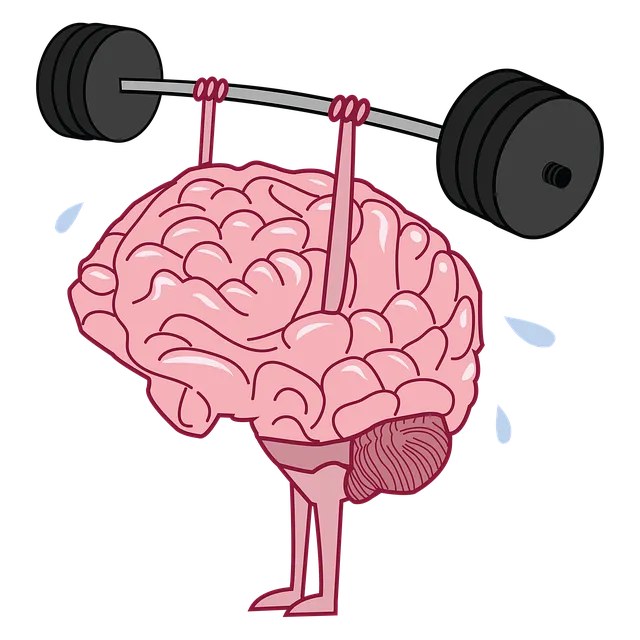In areas like Broomfield where Kaiser Permanente offers mental health services, Mental Wellness Apps are emerging as game-changers, providing accessible and affordable solutions for emotional well-being. These apps cater to diverse needs, from mood tracking and mindfulness exercises to virtual therapy sessions, fostering proactive mental health management. Incorporating AI, Machine Learning, VR, AR, and Empathy Building Strategies into future apps can revolutionize mental wellness support, improving accessibility and personalized care, especially in areas with limited traditional services.
In today’s digital age, mental wellness apps are gaining prominence as essential tools for managing mental health. With a growing demand for accessible and personalized support, understanding the need for these applications is more crucial than ever. This article explores the key features and functionality of mental wellness apps, scrutinizes Kaiser Permanente’s approach in providing mental health services in Broomfield, and looks ahead to future trends and innovations in mental health technology.
- Understanding the Need for Mental Wellness Apps
- Key Features and Functionality in Design
- Kaiser Permanente's Approach: Does it Meet the Mark?
- Future Trends and Innovations in Mental Health Tech
Understanding the Need for Mental Wellness Apps

In today’s fast-paced world, mental wellness is a critical aspect often overlooked in the pursuit of overall health and well-being. This is especially true for individuals living in areas like Broomfield, where access to traditional mental health services through providers such as Kaiser Permanente might be limited. Therefore, Mental Wellness Apps have emerged as a game-changer, offering accessible and affordable solutions for managing emotional health. These apps cater to a wide range of needs, from providing meditation techniques for stress relief to facilitating virtual therapy sessions, all designed to enhance one’s emotional well-being.
The demand for such applications is evident in the growing popularity of mental wellness podcasts and online communities, where users share their experiences and learn coping strategies. This trend underscores the desire for privacy, convenience, and personalized care, which many mental wellness apps effectively deliver. By utilizing innovative technology, these apps not only support individuals struggling with anxiety, depression, or other common mental health challenges but also promote proactive emotional well-being management.
Key Features and Functionality in Design

When designing a mental wellness app, particularly keeping in mind users from areas like Broomfield where Kaiser Permanente offers mental health services, key features must be user-friendly and evidence-based. Incorporate functionalities that promote Mental Health Awareness, such as daily mood tracking, mindfulness exercises, and personalized coping strategies tailored to individual needs. These tools can help users manage stress, anxiety, and depression effectively.
Additionally, the app should include resources for Risk Management Planning for Mental Health Professionals, ensuring they have access to latest research, conflict resolution techniques, and crisis intervention guidelines. Features like secure chat functions and virtual therapy sessions, integrated with a support community, can foster a safe and supportive environment for both professionals and clients. Such comprehensive design addresses not just individual wellness but also contributes to a healthier mental health ecosystem in the community.
Kaiser Permanente's Approach: Does it Meet the Mark?

Kaiser Permanente, a well-known healthcare provider, has been recognized for its comprehensive approach to mental wellness, particularly in its Broomfield location. They offer a range of services aimed at addressing various aspects of mental health and emotional well-being. From therapy sessions to mindfulness workshops, their strategy seems to cover many essential elements required for fostering mental resilience.
However, when scrutinizing their offerings, one might wonder if they go far enough in terms of innovation and personalized care. While traditional talk therapies and group support programs are available, the effectiveness of these services relies heavily on individual needs. Incorporating modern Empathy Building Strategies could enhance their approach, allowing for deeper emotional regulation and connection among users. By integrating digital tools and interactive platforms, Kaiser Permanente could potentially revolutionize mental wellness support, making it more accessible and tailored to today’s diverse population.
Future Trends and Innovations in Mental Health Tech

The future of mental wellness apps is brimming with potential innovations that could revolutionize access to care, especially for regions like Broomfield where Kaiser Permanente offers mental health services. Integrating Artificial Intelligence (AI) and Machine Learning algorithms can enable personalized treatment plans tailored to individual needs, offering a more engaging and effective experience. For instance, AI-powered chatbots can provide immediate support, offer coping strategies, and even detect early signs of relapse or distress.
Furthermore, advancements in Virtual Reality (VR) therapy and augmented reality (AR) applications are paving the way for immersive experiences that simulate calming environments or expose users to anxiety triggers in a safe setting. These technologies, coupled with ongoing research into Cultural Sensitivity in Mental Healthcare Practice, can lead to more inclusive and effective Emotional Well-being Promotion Techniques. Stress Reduction Methods, accessible through apps, are also gaining traction, offering guided meditations, mindfulness exercises, and breathing techniques that help users manage stress levels on their own time.
Mental wellness apps have emerged as a crucial tool for addressing the growing need for accessible and personalized mental healthcare. By integrating key features such as mindfulness exercises, mood tracking, and therapeutic resources, these applications empower users to take control of their mental well-being. Kaiser Permanente’s approach to mental health services in Broomfield, as demonstrated through its app, shows promise in providing comprehensive care. However, continuous innovation is essential to meet the evolving needs of users and keep pace with emerging trends in mental health tech. Future developments should focus on enhanced customization, seamless integration with healthcare providers, and evidence-based interventions to ensure these apps remain effective and relevant in supporting individuals’ mental wellness journeys.






